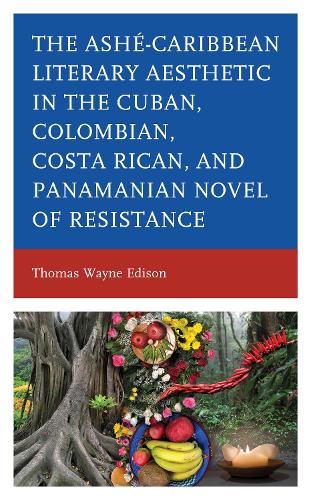
Ash-Caribbean Literary Aesthetic in the Cuban, Colombian, Costa Rican, and Panamanian Novel of Resistance
(Hardback)
Publishing Details
Ash-Caribbean Literary Aesthetic in the Cuban, Colombian, Costa Rican, and Panamanian Novel of Resistance
By (Author) Thomas Wayne Edison
Bloomsbury Publishing PLC
Lexington Books
28th September 2020
United States
Classifications
Professional and Scholarly
Non Fiction
Politics and government
863.6098969729
Physical Properties
Hardback
314
Width 163mm, Height 229mm, Spine 29mm
658g
Description
Ash-Caribbean Literary Aesthetics in the Cuban, Colombian, Costa Rican, and Panamanian Novel of Resistance contributes to understanding the important role that African-influenced spiritual
cultures play in literature that challenges the concept that European aesthetics are superior to African-inspired cultures. Thomas W. Edison highlights the novels of four courageous Caribbean writers who have used their novels to integrate aspects of African ontology with literary techniques, themes, and history. The common element in these works is the inclusion of African-inspired faith traditions and culture. As a result of this perspective, their literature stands out as keen examples of Ash-Caribbean resistance literature. While each writer presents their unique literary style in the works, collectively they draw on a foundation of the Afro-Caribbean. The Circum-Caribbean region will be the geographical unit because of its collective history of slavery, colonial rule, and parallel patterns of religious syncretism. This book makes an important literary connection among Caribbean Hispanophone nations.
Reviews
Edison honors the ancestors, academic and spiritual. His idea of ash aesthetics combines Yoruba- and Bantu-derived concepts of faith, death, time, music, and language with a literary and critical dialogue that spans Carpentier and the pioneers of US Afro-Hispanism to today's critical rediscovery of Zapata, showing that the African diaspora unites diverse generations, nations, and communities.
--John T. Maddox IV, University of Alabama at BirminghamIn this book, Thomas W. Edison argues convincingly in support of the importance of the philosophical concept of Ashe' to the worldviews of the selected Cuban and Afro-Hispanic authors. Ashe', in this context, underscores the resistance to the oppression and dehumanization of black peoples and is an integral component of the cultural maroonage that has sustained them throughout the African Diaspora. Ash-Caribbean Literary Aesthetic in the Cuban, Colombian, Costa Rican, and Panamanian Novel of Resistance is original, thoroughly researched, meticulously documented, and represents an excellent example of literary intertextually in critical practice.
--Marvin A. Lewis, University of MissouriAuthor Bio
Thomas Wayne Edison is associate professor of Spanish in the Department of Classical and Modern Languages at the University of Louisville.
